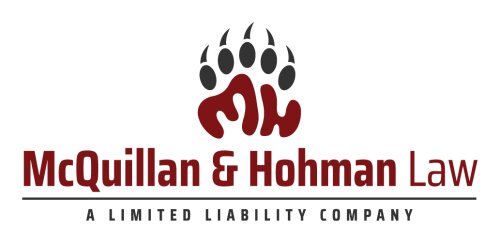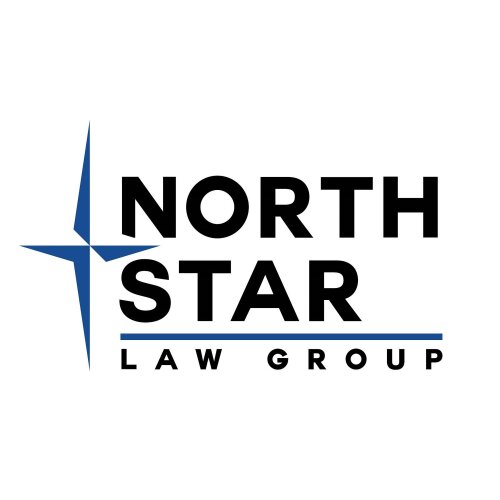Best General Litigation Lawyers in Alaska
Share your needs with us, get contacted by law firms.
Free. Takes 2 min.
Or refine your search by selecting a city:
List of the best lawyers in Alaska, United States
About General Litigation Law in Alaska, United States
General litigation in Alaska is the broad area of law that covers legal disputes resolved in state or federal courts, except for criminal cases. It involves representing clients in civil lawsuits, which can include anything from business disputes, personal injury claims, property disagreements, contract breaches, to landlord-tenant conflicts and more. Alaska's judicial system emphasizes fairness, impartiality, and efficiency, with proceedings typically held in the Alaska Superior Court, District Court, or federal court depending on the nature and scope of the case. The process usually involves investigation, filing documents, pre-trial motions, discovery, trial, and, if necessary, appeal. Understanding the nuances of Alaska's litigation laws and court procedures is crucial for anyone involved in civil litigation.
Why You May Need a Lawyer
People seek the help of a general litigation lawyer in Alaska for a variety of situations. Common scenarios include:
- Being sued or needing to bring a lawsuit against another person or organization.
- Resolving disputes over contracts, services, or property.
- Navigating claims related to personal injuries or property damage.
- Facing landlord-tenant disagreements such as eviction or lease violations.
- Defending against allegations of liability or negligence.
- Seeking compensation for unpaid wages, breach of contract, or employment discrimination.
- Addressing partnership or business disputes that might threaten the operation of your company.
- Assisting with appeals or enforcement of court judgments.
A qualified attorney can analyze your case, explain your rights, develop a legal strategy, handle court filings, negotiate settlements, and advocate on your behalf during hearings or trials. Because litigation can be complex and the outcome significantly impacts your life or business, obtaining legal assistance increases the chances of a favorable result.
Local Laws Overview
Litigation in Alaska is governed by a series of statutes, court rules, and local ordinances that define how civil disputes are resolved. Some key aspects include:
- Small claims court handles less complex disputes involving limited monetary amounts, providing a faster and simpler process for eligible cases.
- The Alaska Rules of Civil Procedure set out the procedures for filing lawsuits, responding to complaints, discovery, motions, and trial conduct.
- Statutes of limitations in Alaska limit the time you have to initiate most types of lawsuits, which can range from two to six years depending on the type of claim.
- The state operates under a "modified comparative fault" rule for personal injury, meaning damages can be reduced based on your degree of responsibility for an accident or loss.
- Court-mandated mediation or alternative dispute resolution is sometimes required before certain civil cases can proceed to trial.
- Alaska courts are known for encouraging early case evaluation and settlement where possible to reduce the burden on the judicial system.
- Alaska allows self-representation, but the litigation process can be challenging to navigate without legal training, especially as cases become more complex.
Frequently Asked Questions
What kinds of disputes fall under general litigation in Alaska?
General litigation encompasses civil legal disputes including but not limited to personal injury, contract disputes, property disagreements, employment issues, and landlord-tenant matters.
How long do I have to file a lawsuit in Alaska?
The time limit to file a lawsuit is known as the statute of limitations. In Alaska, this can range from two years for personal injury claims to six years for certain contract cases. It is important to verify the deadline for your specific situation.
Can I represent myself in a civil lawsuit?
Yes, individuals can represent themselves, a process called "pro se" representation. However, legal processes can be complicated, so consider consulting an attorney to better understand your rights and obligations.
How does the litigation process work in Alaska?
Litigation typically begins with filing a complaint, followed by serving the other party, discovery (exchange of information), pre-trial motions, trial, and potential appeals. Many cases are settled before reaching trial.
What is small claims court and should I use it?
Alaska's small claims court handles cases involving lower dollar amounts, up to a specified limit. It is designed to be more accessible for individuals and often does not require attorney representation.
Will my case go to trial?
Most civil cases are resolved through settlement or dismissal before reaching trial. However, if neither side settles and the issues remain contested, the case may proceed to trial.
What happens if I lose my case?
If you lose, you may be responsible for paying damages, court costs, and sometimes the other party's attorney fees. You may also have the option to appeal the decision within a certain timeframe.
How much does it cost to hire a general litigation lawyer?
Costs vary depending on the complexity of your case and the lawyer’s experience. Some lawyers charge hourly rates, while others may offer contingency or flat fee arrangements, especially for certain types of cases.
What is discovery and why is it important?
Discovery is the phase in litigation where both parties exchange relevant information and evidence. It is crucial because it allows each side to prepare their case, understand the other's arguments, and potentially lead to settlement.
Are there alternatives to going to court?
Yes, alternatives like mediation and arbitration are available. These methods offer a less formal setting, faster resolution, and sometimes lower costs compared to traditional litigation.
Additional Resources
If you need more information or assistance regarding general litigation in Alaska, consider these resources:
- Alaska Court System - Provides information on court locations, forms, rules, and self-help resources.
- Alaska Bar Association - Offers a lawyer referral service and resources for finding qualified attorneys.
- Alaska Legal Services Corporation - Provides free or low-cost legal assistance for eligible individuals, particularly for those with low income.
- Municipal Law Libraries - Many libraries offer free access to legal research materials and assistance with legal information.
- Community Mediation Centers - Help resolve disputes outside the courtroom at minimal or no cost.
Next Steps
If you believe you have a general litigation issue in Alaska, here’s how to proceed:
- Gather all relevant documents, contracts, correspondence, and evidence related to your dispute.
- Consider your goals, desired outcomes, and possible solutions.
- Research potential attorneys via the Alaska Bar Association or lawyer referral services, or contact Alaska Legal Services if you need low-cost assistance.
- Schedule an initial consultation with one or more lawyers to discuss your case, costs, and legal strategy.
- Ask about the attorney's experience with similar cases, fee arrangements, and what to expect during the litigation process.
- Follow your attorney’s guidance on filing deadlines, court appearances, and settlement negotiations.
- Stay organized and responsive, keeping copies of all legal documents and communications.
Seeking professional legal help early can make a significant impact on the outcome of your case and help ensure your rights are protected throughout the litigation process in Alaska.
Lawzana helps you find the best lawyers and law firms in Alaska through a curated and pre-screened list of qualified legal professionals. Our platform offers rankings and detailed profiles of attorneys and law firms, allowing you to compare based on practice areas, including General Litigation, experience, and client feedback.
Each profile includes a description of the firm's areas of practice, client reviews, team members and partners, year of establishment, spoken languages, office locations, contact information, social media presence, and any published articles or resources. Most firms on our platform speak English and are experienced in both local and international legal matters.
Get a quote from top-rated law firms in Alaska, United States — quickly, securely, and without unnecessary hassle.
Disclaimer:
The information provided on this page is for general informational purposes only and does not constitute legal advice. While we strive to ensure the accuracy and relevance of the content, legal information may change over time, and interpretations of the law can vary. You should always consult with a qualified legal professional for advice specific to your situation.
We disclaim all liability for actions taken or not taken based on the content of this page. If you believe any information is incorrect or outdated, please contact us, and we will review and update it where appropriate.
Browse general litigation law firms by city in Alaska
Refine your search by selecting a city.

















